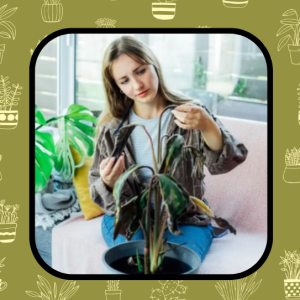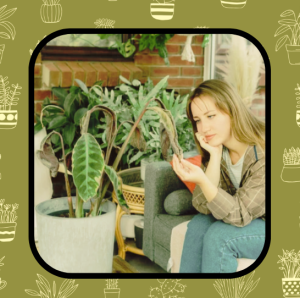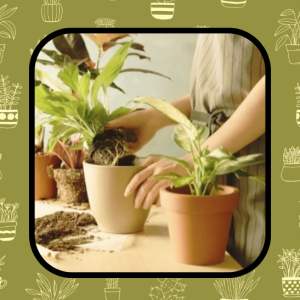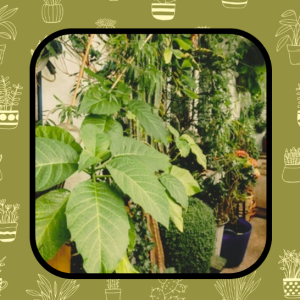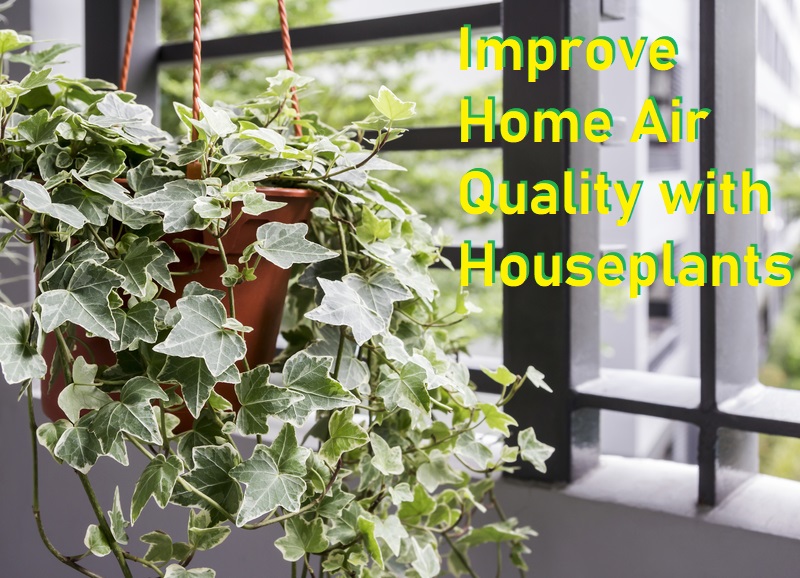HousePlantJoy is supported by our audience. When you purchase through one of our links, we may earn a small affiliate commission. As an Amazon Associate I earn from qualifying purchases. Your cost is not affected.
==================
“Benefits of Plants in the Home” extend far beyond mere decor, revealing a tapestry of advantages contributing to physical and mental well-being. Venture with us into the realm where indoor plants aren’t just green companions but vital elements enriching your space, enhancing your mood, and purifying the air you breathe.In this exploration, we uncover the transformative impact of houseplants, turning your home into a sanctuary where beauty meets tangible health benefits. Join us as we unravel how these botanical wonders elevate our living spaces and, consequently, our lives.
Benefits of Plants in the Home: Enhancing Well-Being and Air Quality
Introducing greenery into your living space goes far beyond mere aesthetics. Indoor plants in your home can play a vital role in improving your physical and mental well-being. Research has shown that sharing your space with living plants can help reduce stress levels, with one study indicating that interacting with indoor plants may lower physiological and psychological stress. Moreover, plants can contribute to the air quality of your home by acting as natural air purifiers; some are even capable of removing common toxins.
Plants have a unique ability to replenish the air with oxygen through photosynthesis and add moisture to the air, which can be particularly beneficial during dry months or for those with respiratory issues. The health benefits are complemented by their ability to enhance your home environment, creating a pleasing and tranquil space. Through thoughtful placement and selection, plants can also accentuate the design of your interiors, bringing a sense of life and vitality to any room.
Key Takeaways
- Indoor plants may provide stress relief and enhance mood.
- They can improve air quality and offer respiratory health benefits.
- Houseplants elevate your home’s aesthetics and create a more serene environment.
Psychological Benefits
Incorporating plants into your home environment can lead to significant psychological benefits. You may experience reduced stress levels, improved mood, and enhanced cognitive functioning.
Stress Reduction
Keeping plants in your home can be a natural stress reliever. Studies suggest that the simple act of tending to plants can help lower your stress hormone levels. Indeed, interacting with indoor plants may reduce both physiological and psychological stress.
Mood Enhancement
The presence of houseplants can also lead to a noticeable improvement in mood. Engaging with plants by watering or touching them has been linked to increased feelings of optimism and happiness. Caring for something living also provides a sense of satisfaction that can boost your overall mood.
Cognitive Function Improvement
There’s evidence to suggest that houseplants can improve cognitive function. Engaging with your indoor greenery might enhance your concentration, memory, and attention span. Visual exposure to plants can lead to increased creativity and problem-solving skills.
Physical Health Advantages
Incorporating plants into your home environment can bring tangible benefits to your physical health, mainly through enhanced air quality and improved humidity levels.
Air Quality Improvement
Indoor plants can be natural allies in removing common toxins from your living spaces. Plants like the spider plant and bamboo palm are known for filtering out formaldehyde and benzene, contributing to cleaner breathing air. A study highlighted by Healthline confirms that certain indoor plants may reduce levels of these pollutants. Furthermore, the presence of foliage in rooms can minimize dust and mold, as WebMD indicates, effectively reducing allergens.
Humidity Regulation
Your indoor plants not only purify the air but also regulate humidity. The process of transpiration releases moisture vapor from plant leaves, which increases the room’s humidity to a healthier level. This can be especially beneficial in reducing the incidence of respiratory discomforts and irritation caused by dry air. Maintaining a moderate humidity level helps hydrate your skin and respiratory system, creating a more comfortable living environment.
Interiors and Aesthetics
Incorporating houseplants into your home decor enhances the space’s visual appeal and allows for a personalized touch that reflects your style.
Visual Appeal
Houseplants can transform the look of a room, adding color and texture that can break the monotony of solid colors. A study in the Journal of Environmental Psychology found that rooms with plants are perceived as more welcoming and relaxing. Strategically placed greenery can create focal points or soften architectural lines, where a tall fiddle leaf fig might accentuate high ceilings, or trailing ivy can add depth to shelves.
Space Personalization
Your selection of indoor plants is a direct reflection of your personality and can express your unique aesthetic. A Boston fern might evoke a classic feel, while a collection of succulents showcases a more modern, minimalist vibe. Moreover, using plants like orchids or snake plants, which release oxygen at night, lends to the style and the bedroom’s functional design, supporting better sleep environments.
Video Credit: @joyoushealth
Wellness and Mindfulness
Incorporating plants into your home enhances its aesthetic appeal and supports your mental well-being and mindfulness practices. Plants offer a serene and grounding influence, fostering a peaceful environment conducive to relaxation and reflection.
Connection to Nature
You might only sometimes have the opportunity to spend time outside, but bringing plants into your home can mimic the experience of being in nature. It has been reported that houseplants reduce stress and promote feelings of tranquility. By connecting to nature indoors, you create a space that allows you to engage with the natural world daily, which can be especially beneficial in urban environments that lack green spaces.
Therapeutic Gardening
Engaging in activities such as therapeutic gardening can provide a sense of accomplishment and purpose. Nurturing plants and witnessing their growth can improve your mood, making you more optimistic. Whether reporting succulent or pruning herbs, these activities encourage you to focus on the present, reducing feelings of stress and anxiety.
Harmonizing Homes: Embracing the Benefits of Plants in the Home
As we conclude our voyage through the verdant landscape of indoor greenery, one undeniable truth stands tall – the profound impact of plants in our homes goes beyond the visual appeal. They are, in essence, transformative allies contributing to our well-being, creating not just spaces but sanctuaries where tranquility, health, and beauty converge. In embracing the myriad benefits of plants in the home, we invite you to cultivate greenery and a thriving tapestry of life within your living spaces. Let the vibrant energy of nature continue to breathe life into your home, fostering a haven that resonates with vitality and joy.
Frequently Asked Questions
In this section, you’ll find targeted insights about the benefits and considerations of having plants in your home.
What indoor plants are known to improve air quality?
Certain indoor plants, such as the peace lily or snake plant, are celebrated for enhancing air quality. These species can absorb toxins like formaldehyde, improving the air you breathe.
Can indoor plants have a positive impact on mental health?
Yes, your mental well-being can benefit from indoor plants. Research suggests they can reduce stress levels and aid in creating a more relaxing environment.
What are the potential drawbacks of maintaining indoor plants?
Maintaining indoor plants might present challenges like pest infestations or mold growth due to overwatering. Keeping informed on plant care is essential to mitigate these issues.
How do bedroom plants contribute to better sleep quality?
Plants like lavender or aloe vera in the bedroom positively impact sleep by purifying the air and releasing a soothing scent of oxygen, which might improve sleep quality.
Which indoor plants are recognized for having health benefits?
Several indoor plants provide health benefits; for instance, bromeliads can remove more than 80% of certain airborne toxins, and spider plants are praised for their air-purifying abilities.
How do houseplants align with environmental sustainability?
Houseplants support environmental sustainability by cleaner air production and carbon dioxide absorption, contributing to a reduction in your carbon footprint when incorporated into home design.
Discover Plant Paradise!
Join our vibrant community on social media for captivating content, insightful product reviews, and a shared passion for indoor plants. Connect with us on:
Let’s grow together! #HouseplantJoy


